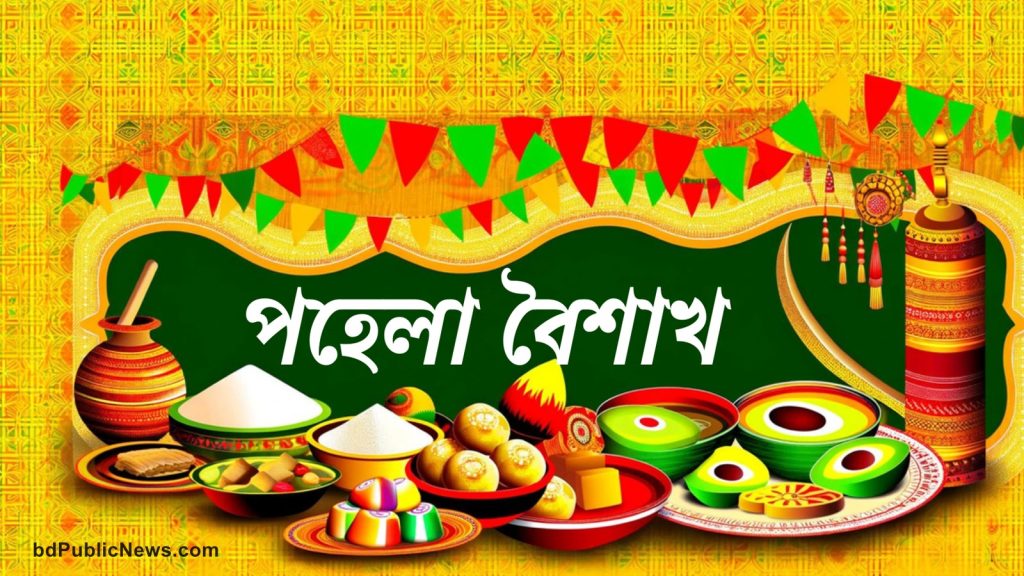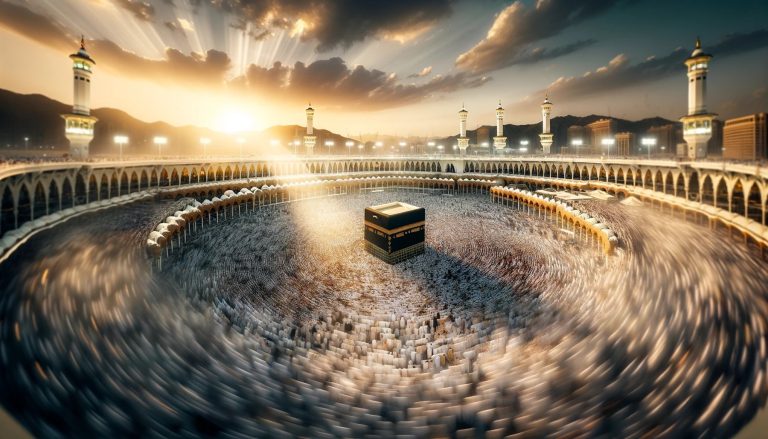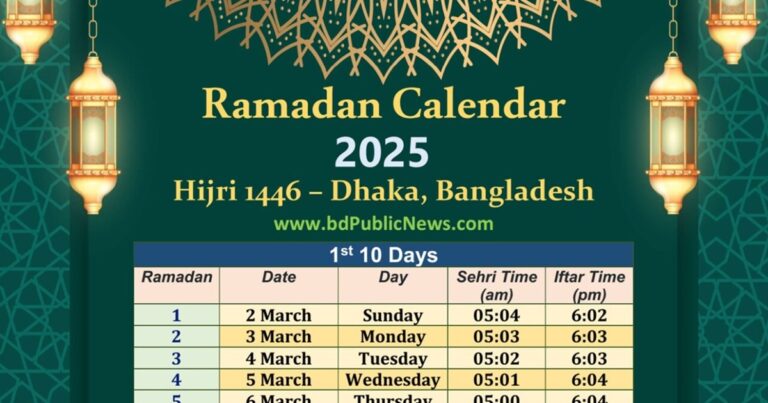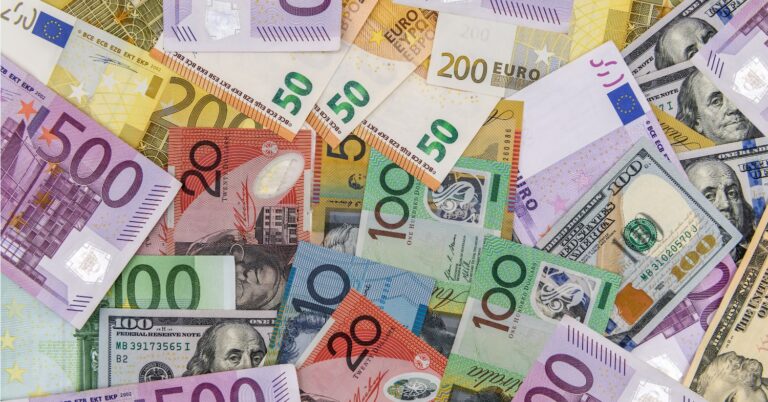Pohela Baishakh Festival in Bangladesh: A Vivid Celebration of New Beginnings
Pohela Baishakh Festival in Bangladesh
Pohela Baishakh, the onset of the Bengali New Year, is a cornerstone of Bangladesh’s cultural and social landscape. This festival, celebrated on April 14 each year, is more than just a national holiday; it’s a vibrant expression of Bangladesh’s rich heritage, communal unity, and the undying spirit of its people. It transcends religious and ethnic divides, bringing everyone together in a collective celebration of renewal and hope. As we delve into the essence of Pohela Baishakh, we explore its historical roots, vibrant customs, and the role it plays in contemporary Bangladeshi society, painting a picture of a nation bonded by tradition and a shared vision for the future.
The Historical Roots of Pohela Baishakh
The inception of Pohela Baishakh can be traced back to the Mughal Emperor Akbar’s reign in the 16th century. Initially conceived to streamline tax collection in the agrarian society, the day marks the commencement of the Bengali calendar, intricately woven into the socio-cultural fabric of Bangladesh. This calendar is a unique amalgamation of solar and lunar cycles, distinguishing it from other lunar-based calendars in the region.
Over the centuries, Pohela Baishakh transcended its agrarian roots, evolving into a broader celebration that encapsulates the spirit of the Bangladeshi people. It symbolizes resilience, communal harmony, and the perennial hope that defines the nation’s ethos. This festival is a testament to Bangladesh’s rich cultural tapestry, showcasing its ability to preserve tradition while embracing modernity.

Traditions and Customs
The festivities of Pohela Baishakh are steeped in rich traditions and customs that bring to life the cultural vibrancy of Bangladesh. The day begins with people across the country donning traditional attire. Men wear Panjabi or Kurta, while women dress in Saris with red and white designs, emblematic of purity and joy.
A central feature of the celebration is the Mangal Shobhajatra, a UNESCO-recognized procession organized by the Faculty of Fine Arts, University of Dhaka. Featuring large, colorful effigies, masks, and folk music, this procession is a vibrant declaration of the community’s shared cultural identity and aspirations for the future.
Culinary traditions play a significant role in the day’s celebrations. The traditional breakfast of Panta Bhat (water-soaked rice) served with fried Hilsa fish, green chilies, and onion, encapsulates the essence of Bengali cuisine. Sweets and seasonal fruits also abound, signifying prosperity and community fellowship.
Cultural events and performances, including music, dance, and poetry recitals, are integral to the festivities. These events, resonating with the tunes of Rabindra Sangeet and folk music, celebrate Bangladesh’s rich artistic heritage, drawing people into a shared experience of cultural pride and joy.
The Festival Today: A Symbol of Unity and Cultural Pride
In modern times, Pohela Baishakh has burgeoned into a significant cultural phenomenon, transcending its historical and agrarian roots to embody unity, pride, and a profound sense of national identity. It acts as a mirror reflecting the socio-cultural dynamism of Bangladesh, engaging people from diverse backgrounds in a collective celebration of their heritage.
The festival’s significance extends beyond national borders, serving as a conduit for promoting Bangladeshi culture globally. Through the lens of Pohela Baishakh, the international community witnesses the vibrancy, traditions, and artistic expressions of Bangladesh. This global exposure fosters a deeper appreciation and understanding of the nation’s cultural richness and diversity.
Economically, Pohela Baishakh stimulates local commerce through the organization of fairs and markets (Melas) across the country. These gatherings are not just commercial hubs but cultural hotspots where artisans, craftsmen, and vendors showcase and sell traditional goods, from handloom fabrics to handmade jewelry and artisanal crafts. These markets are vital for supporting local economies and maintaining traditional crafts, adding to both the cultural and economic dynamism of Bangladesh. They provide essential avenues for artisans to sustain their livelihoods and keep age-old traditions alive, enriching the community’s heritage and economic prosperity.
Socially, Pohela Baishakh reinforces communal bonds and social cohesion. The festival is a testament to the power of cultural traditions in fostering unity and understanding among people. It provides a space for reflection, renewal, and the reaffirmation of shared values and aspirations.
Pohela Baishakh Festival in Bangladesh: A Celebration of Culture and Renewal
Traditional Foods of Pohela Baishakh
Pohela Baishakh’s celebrations are incomplete without the traditional foods that symbolize the essence of Bengali cuisine. Central to this culinary tradition is “Panta Ilish” – a simple yet profound dish of water-soaked rice (Panta Bhat) served with Hilsa fish, the national fish of Bangladesh, marinated and fried to perfection. This dish, accompanied by green chilies, onions, and a dash of mustard oil, offers a unique taste that resonates with the spirit of the festival. Additionally, sweets like Rosogolla, Sandesh, and Pitha (rice cakes) are widely consumed, adding a note of sweetness to the day’s celebrations. These foods are not just meals; they are a cultural expression, bringing families and communities together, fostering a sense of unity and joy.
Halkhata: Renewing Bonds and Accounts (150 words)
An integral part of the Pohela Baishakh celebration is “Halkhata” – the traditional practice of opening new ledgers for businesses. This day marks the beginning of the new financial year for traders and shopkeepers, who invite customers to settle old accounts and start anew. Shops and businesses are decorated, and customers are welcomed with sweets and snacks as a gesture of goodwill. The Halkhata ceremony underscores the values of trust, loyalty, and renewal in business practices. It’s a day when commercial transactions are imbued with personal connections, reinforcing the communal fabric of Bangladeshi society. This practice not only fosters a spirit of community and goodwill but also symbolizes the hope for prosperity and success in the year to come.
Mela: The Festive Fairs of Pohela Baishakh
Melas (fairs) are synonymous with the celebration of Pohela Baishakh, serving as vibrant hubs of cultural and commercial activity. Across towns and villages, these fairs are set up, drawing people from all walks of life. The Mela is a kaleidoscope of traditional arts, crafts, performances, and culinary delights. Artisans and craftsmen display their skills, selling everything from handloom fabrics to terracotta pottery. Performances by folk singers, dancers, and puppeteers add to the festive atmosphere, entertaining visitors with the rich artistic traditions of Bangladesh. These fairs not only provide a platform for cultural expression and economic activity but also play a crucial role in preserving and promoting Bangladesh’s heritage. The Mela is a testament to the vibrant community life in Bangladesh, showcasing the country’s diversity and the shared joy of celebration.
By integrating these elements, the article now offers a richer exploration of the Pohela Baishakh festival, capturing its essence as a multifaceted celebration deeply rooted in Bangladeshi culture, traditions, and communal values.
Embracing the Future with Traditions in Heart
Pohela Baishakh stands as a testament to the enduring strength and unity of the Bangladeshi people. It is a day that encourages all to embrace the new year with open hearts and minds, carrying forward the legacy of their ancestors while paving the way for future generations. In the face of globalization and rapid modernization, Pohela Baishakh serves as a vital link to the past, ensuring that the rich tapestry of Bangladeshi culture is not only preserved but thrives.
As we celebrate Pohela Baishakh, we are reminded of the power of traditions to bind communities, inspire hope, and foster a shared sense of identity and purpose. It is a celebration that transcends the confines of time, serving as a vibrant reminder of Bangladesh’s cultural heritage and the unbreakable spirit of its people.
Pohela Baishakh is more than just a festival; it is a vivid celebration of new beginnings, cultural pride, and the indomitable spirit of the Bangladeshi people. As the country continues to evolve, Pohela Baishakh remains a cherished reminder of its cultural roots, a symbol of unity in diversity, and a beacon of hope for the future. In celebrating Pohela Baishakh, Bangladeshis reaffirm their commitment to their heritage, their community, and the endless possibilities that lie ahead.






